FOUNDATIONAL BELIEFS

In harmony with the early church apostles – We believe in God, the Father almighty, maker of heaven and earth, and in Jesus Christ his only Son our Lord, who was conceived by the Holy Spirit, born of the Virgin Mary, suffered under Pontius Pilate, was crucified, dead, and buried. He descended into hell. The third day he rose again from the dead. He ascended into heaven and is seated on the right hand of God the Father almighty. From then He shall come to judge the quick and the dead. We believe in the Holy Spirit, the holy Church, the communion of saints, the forgiveness of sins, the resurrection of the body, and life everlasting. Amen.
It is the purpose of this statement of faith and message to set forth certain teachings, which we believe:
- That the finale authority for faith and practice among us is the Scriptures of the Old and New Testaments.
- That they are statements of religious convictions, drawn from the scriptures.
- We profess a living faith. This faith is rooted and grounded in Jesus Christ who is “The same yesterday, today and forever.” Therefore, the sole authority for faith and practice among us is Jesus Christ whose will is revealed in the Holy Scriptures.
- A living faith must experience a growing understanding of truth and must be continually interpreted and related to the needs of each new generation.
- That instruction and guidance of our own people and others must be given concerning those articles of the Christian faith, which are most surely held among us. They are not intended to add anything to the simple conditions of salvation revealed in the New Testament, repentance towards God and faith in Jesus Christ as Savior and Lord.
- We regard these as fundamental statements of our faith. It may be necessary in the future to revise our statements of faith as may seem wise and expedient. But the core of our beliefs, based on the Holy Bible, stand the test of time.
THE HOLY BIBLE
We believe the Scriptures of the Old and New Testaments to be verbally inspired by God and that they are the supreme and final authority in faith and conduct (2 Peter 1:20-21; 2 Tim. 3:16). The Holy Bible was written by men divinely inspired and is the record of God’s revelation of Himself to humanity. It is a perfect treasure of divine instruction. It has God for its Author, salvation for its end, and truth, without any mixture of error, for its matter. It reveals the principles by which God judges us, and therefore is and will remain to the end of the world.
The Bible speaks with authority because it is the Word of God. It is the final rule for faith and practice because it is the inspired and trustworthy witness to the mighty acts of God in self-revelation and redemption, all brought to fulfillment in the life, teachings, and saving work of Jesus Christ. It reveals the mind of Christ and teaches the meaning of His Lordship. In its unique and unified disclosure of the will of God for mankind, the Bible is the final authority in pointing persons to Christ and in guiding them in all matters of Christian faith.
“Continue in the things which you have learned and been assured of, knowing from whom you have learned them, and that from childhood, you have known the Holy Scriptures, which are able to make you wise for salvation through faith which is in Christ Jesus. All Scripture is given by inspiration of God, and is profitable for doctrine, for reproof, for correction, for instruction in righteousness, that [each believer in] God may be complete, thoroughly equipped for every good work” (2 Tim. 3:14-17).
The Ten Commandments are God’s blueprint of how you are to live and relate both to God and men. They were originally given by God to Moses on Mount Sinai, as recorded in the Old Testament (Ex. 20:1-20; Deut. 5:5-21) and are as follows:
I am the Lord your God: you shall have no other gods but Me.
-
- You shall not make for yourself any idol.
- You shall not dishonor the name of the Lord your God.
- Remember the Lord’s Day and keep it holy.
- Honor your father and mother.
- You shall not commit murder.
- You shall not commit adultery.
- You shall not steal.
- You shall not be a false witness.
- You shall not covet anything, which belongs to your neighbor.
Jesus summarized the Ten Commandments into two:
-
- “Love the Lord your God with all your heart and with all your soul and mind. This is the first and greatest commandment.”
- “The second is like it: Love your neighbor as yourself” (Matt. 22:37; Mark 12:30-31).

About the Bible
The word “Bible” comes from the Greek word “biblios” which means book. It contains 66 books, written by 40 authors over a period of about 1,600 years. It consists of the Old Testament (39 books) and the New Testament (27 books). The word “testament” means covenant or agreement. The Old Testament is the agreement God made with man about his salvation. The New Testament reveals Jesus Christ as the promised Savior of the world. The primary purpose of the Bible is to unfold God’s plan of salvation through Jesus Christ. Scripture bears witness to Christ so that we might respond to Him in faith (Rom. 10:17).
The Bible has stood the test of time, the greatest test of all literature. It was completed nearly 2,000 years ago yet is now read more than any other book and by people of widely varying cultures. There were many different writers, who lived and wrote in different countries. They came from different walks of life and different social positions. One wrote history, another biography; another wrote on theology, another poetry, another prophecy. Some wrote on philosophy, and some stories of adventure, travel, and romance. Most of them had no contact with each other and no means of knowing that when their writings were all put together as one book it would be complete, all parts agreeing in doctrine, teaching and prophecy.
Christians believe the Bible to be the Word of God because the Lord Jesus Christ believed it to be so. He constantly referred to the Old Testament in His Teachings. In every case, His words show that He believed in its historic accuracy and Divine Authority. Here are three (of many) passages which show his attitude to the Old Testament, called by the Jews “The Law and The Prophets.”
-
- Matt. 5:17-19 – Jesus emphasizes the Authority of The Law.
- Luke 24:27 – He underlines the Message of The Prophets.
- John 5:39,40 – He speaks of them as pointing to Himself as the source of eternal life.
He also gave the seal of His Authority to the New Testament in advance of it being written.
-
- Matt. 28:19,20 – Jesus commissioned His disciples to teach all nations “Everything I have commanded you.” This would have been impossible without a written record.
- John 14:26 – He promised that the Holy Spirit would bring back to their memories “Everything I have said to you.”
- John 16:12-14 – He assured the disciples that the Holy Spirit would teach them things they were not ready to understand at that time, but which were a vital part of His message.
Therefore, to believe that Jesus is the Son of God is to believe in the divine authority of the Bible. Further, Paul the apostle wrote “All Scripture is God-breathed” (2 Tim. 3:16). And it is clear from 2 Peter 3:16 that Peter regarded Paul’s writings as part of Holy Scripture.
The Bible, or portions of it, has now been translated into over 2,000 languages and dialects. There have been many different translations from the time of Wycliffe in the fourteenth century onwards. The one which has been used for the longest period is known as the Authorized Version. This translation was the work of 47 Biblical Scholars commissioned by King James I and was completed in 1611. There are more recent translations and paraphrases available in modern English. The New International Version was produced by a panel of 100 internationally recognized Bible scholars.
The Bible is the story of God’s revelation of Himself to man. It is not primarily a book of history, but its stories of God’s dealings with individuals and with nations are as pertinent to the modern world as they have been to every age since they were written. It is not primarily a book of science, but it is not at variance with any proven scientific fact. Some of its statements show a knowledge of the world of science which the writer could not have had apart from divine revelation.
It is not primarily a book of philosophy. Nowhere does it argue for the existence of God. Yet, the God it reveals has been known in a personal way by many of the greatest minds who have ever lived as well as by many millions of ordinary people. It speaks to every man from the simplest to the most sophisticated at his own level of understanding. Throughout the Old Testament, the theme of the Redemption of Mankind is developed, and God unfolds His Covenant with men and nations. In the New Testament, all that has been foreshadowed in the Old Testament comes to vibrant and startling reality.
God Himself comes to earth in the person of Jesus Christ. He is rejected and crucified but rises from the dead in triumph. He sends His disciples out in the power of the Holy Spirit to carry His message of Love and Forgiveness to the four corners of the earth. The great vision of the book of Revelation, with which the Bible ends, reinforces the warnings of the whole Book regarding the consequences of rejecting God’s Light and Love, and in poetic terms describes the future of the Redeemed in heaven.
This Book has the power not only to inform – but to reform and to transform lives. Through its influence, countless people have been given a new strength, an unerring purpose, and a sure hope in life. To the dying, it has brought peace and assurance of eternal life. It has brought blessing to millions in every land and age. It is supernatural in origin, eternal in duration, divine in authorship, infallible in authority, inexhaustible in meaning, universal in readership, unique in revelation, personal in application and powerful in effect. It is given to you here in this life, it will be open at the Judgment, it is established forever. Come to it with awe, read it with reverence, frequently, slowly, prayerfully.
“Jesus did many other miraculous signs in the presence of his disciples, which are not recorded in this book. But these are written that you may believe that Jesus is the Christ, the Son of God, and that by believing you may have life in his name” (John 20:30,31).
The Holy Trinity
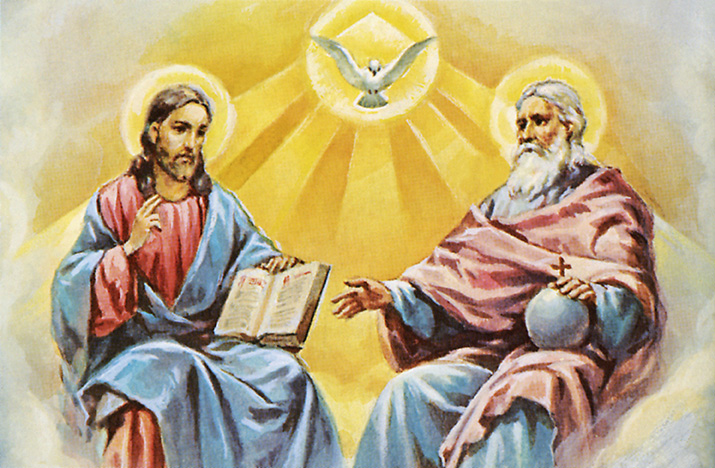
The coexistence of the Father, the Son, and the Holy Spirit in the unity of the Godhead (divine nature or essence). The doctrine of the trinity means that within the being and activity of the one God there are three distinct persons: Father, Son, and Holy Spirit. Although the word trinity does not appear in the Bible, the formula for it is mentioned in the Great Commission (Matt. 28:19) and in the benediction of the apostle Paul’s Epistle (2 Cor. 13:14). The Bible teaches that there is ONE God, and there are THREE persons Father, Son, and Holy Spirit (the Holy Trinity). The Bible affirms that each of these three persons has divine attributes, titles, and actions, and accords to them the worship that is due to Deity.
GOD
We believe there is one true God, and He has revealed Himself as the eternally self-existent “I AM,” the Creator of heaven and earth and the Redeemer of mankind (Exodus 3:14). He has further revealed Himself as embodying the principles of relationship and association as Father, Son and Holy Spirit, the Creator, Redeemer, Preserver and Ruler of the Universe (Luke 3:22; Phil. 2:5-7) God is infinite in holiness and all other perfections. To Him, we owe the highest love, reverence, and obedience. God is personal. We must get to know Him as we get to know a person. God is love. This is supremely seen in the death of Jesus Christ on the cross for the sins of humankind (John 3:16). God is holy, infinite, eternal, unchanging and is the Creator of all things, both material and spiritual, and the source of life. He is omnipotent (all-powerful), omnipresent (present everywhere) and omniscient (all-knowing).
JESUS CHRIST
We believe that Jesus Christ was begotten of the Holy Spirit, born of a virgin, and is both true God and true Man. He has all the attributes and actions of Deity. He was born into this world as a human baby and grew up like any child. He had normal physical limitations and experienced human emotions. He died and was buried, but rose again, ascended into heaven and is alive forever. By His death on the cross, Jesus Christ achieved the salvation of sinners, the revelation of God and the conquest of evil. There is no other name under heaven whereby men must be saved; and that as Christians, we are obliged to make this truth known. John the Baptist introduced Jesus as the Lamb of God who takes away the sins of the world (John 1:29), as well as the baptizer in the Holy Spirit (Luke 3:16).
HOLY SPIRIT
The Holy Spirit is a Person. He is God, together with the Father and the Son. He has all the attributes and actions of Deity. He is the author, teacher, and interpreter of Scripture. He convicts people of sin, righteousness, and judgment. In relation to believers, He fills, guides, empowers, teaches, intercedes, speaks, commands, and gives gifts. Christians are to bear the fruit of the Holy Spirit (Gal. 5:22-23). He convicts humanity of sin and of righteousness and of judgment, thus making effective for individual salvation and the saving work of Christ. He abides in the hearts of the believers, acting as their advocate with God. The Spirit seeks to achieve God’s will and purpose among people. He empowers Christians for the work of ministry and sanctifies and preserves the redeemed for the praise of Christ. He calls for a free and dynamic response to the Lordship of Christ and for a faithful obedience to the Word of God.
HUMANITY
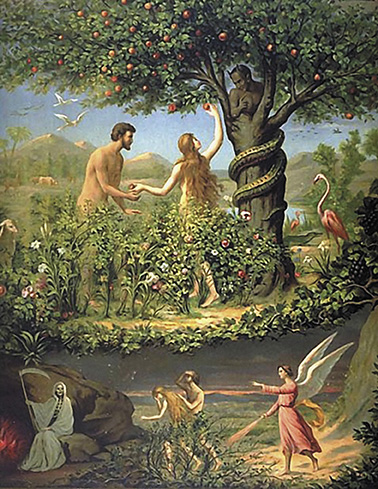
We believe that humans were created by the special act of God, in His own image, and as the crowning work of His Creation (Gen. 1:26). In the beginning, they were innocent of sin and were endowed by the Creator with freedom of choice. Through free choice, they sinned against God and brought sin on all humans. Through the temptation of Satan, they transgressed the command of God, and fell from original innocence; whereby their descendants inherited a nature inclined toward sin, and as soon as they are capable of moral action become transgressors and are under condemnation (Gen. 3:1-15). Only the grace of God can bring people into His holy fellowship and enable them to fulfill the creative purpose of God.
Because individuals are created in the image of God, they are responsible for their moral and religious decisions. People are competent under the leadership of the Holy Spirit to make their own response to God’s call through the gospel of Christ, to commune with God, and to grow in the grace and knowledge of our Lord. Everyone is free under God in all matters of conscience, and has the right to embrace or reject religion, and to witness to their own religious beliefs, always with proper regards for the rights of others. Religious liberty is cherished as a right under God.
The Bible also reveals that Christ died for all people. The fact that we were created in the image of God and that Christ died for us is the source of our worth and dignity (Col. 1:21-22). Each person has the God-given right to be recognized and accepted as an individual regardless of race, color, creed, or culture; to belong with dignity and respect to one’s own community; and to have the opportunity to achieve full potentiality. Therefore, every person is worthy of respect and Christian love.
SALVATION BY GRACE
We believe that humanity’s only hope of redemption is through the shed blood of Jesus Christ, the Son of God. The inward evidence of salvation is the direct witness of the Spirit (Rom. 8:16).
Man was created in the image of God (Gen. 1:26-27). He has a spirit, soul (mind and emotions) and body. Adam and Eve sinned, and through them sin entered humanity (Gen. 3:1-15). Thus, all have sinned and fallen short of God’s standard (Rom. 3:23). Man is incapable of redeeming himself. The Bible teaches that the wages of sin is death (Rom. 6:23). To overcome this dilemma, God sent His Son Jesus Christ to die for the sins of humankind (John 3:16). Through His perfect sacrifice on the cross, He paid the penalty of sin, and we now have access to God through Jesus Christ (Eph. 2:18; Heb. 10:19). Jesus is the only way to God. To enter the Kingdom of God, one must be born again by the Holy Spirit (John 3:3-8), by repenting of our sins and receiving Jesus into our lives as Lord and Savior (Rom. 10:9; 1 Tim. 4:10). We are to live our new life in Christ in faith and obedience, by offering ourselves as a living sacrifice to God (2 Cor. 5:17; Rom. 1:5; 12:1).
Grace is God’s loving and merciful provision for the need of lost mankind. Individuals in their natural state are self-centered and proud; they are in bondage to Satan and spiritually dead in trespasses and sins. Because of their sinful nature, they are helpless to save themselves. But God is graciously disposed toward all people despite their moral corruption and spiritual rebellion. Salvation is not the result of human merit or achievement but of divine purpose and initiative. It is not by means of moral training but by divine mercy and power. Salvation from sin is the gift of God through Jesus Christ, conditioned only upon repentance toward God and trust in and commitment to Christ the Lord. When we pray in faith and ask Christ to forgive us of our sins, then a whole new world of opportunity will open for us.
One of the greatest privileges we have today is the ability to pray. If an individual has not been born again, the first prayer that God wants to hear is a prayer of repentance. Jesus Christ said, “He came to His own, and His own did not receive Him. But as many as received Him, to them He gave the right to become children of God, to those that believe in His name” (John 1:11-12). “And it shall come to pass, that whoever calls on the name of the Lord shall be saved” (Acts 2:21). “My little children, these things I write to you, so that you may not sin. And if anyone sins, we have an Advocate with the Father, Jesus Christ the righteous. He is the atonement for our sins, and not for ours only but also for the whole world” (1 John 2:1-2).

Salvation, which comes by grace, through faith, brings one into a vital life-changing union with Christ, which is characterized by a life of faithfulness and good works. The same grace by means of which one has been saved is the assurance of God’s continuing forgiveness and help in living the Christian Life. Salvation involves the redemption of the whole person and is offered freely to all who accept Jesus Christ as Lord and Savior, who by His own blood obtained eternal redemption for the believer. In its broadest sense, salvation includes regeneration, sanctification, and glorification.
Regeneration, or the new birth, is a work of God’s grace whereby believers become new creatures in Christ Jesus. It is a change of heart brought by the Holy Spirit through conviction of sin, to which the sinner responds in repentance toward God and faith in the Lord Jesus Christ. Repentance and faith are inseparable experiences of grace. Repentance is a genuine turning from sin toward God. Faith is the acceptance of Jesus Christ and commitment of the entire personality to Him as Lord and Savior. Justification is God’s gracious and full pardon, based on His righteousness, for all sinners who repent and believe in Christ. Justification brings the believer into a relationship of peace and favor with God. Sanctification is the experience, beginning in regeneration, by which believers are set apart to God’s purposes and are enabled to progress toward moral and spiritual maturity through the power of the Holy Spirit in them. Growth and grace should continue throughout the regenerated person’s life. Lastly, Glorification is the culmination of salvation and is the final blessed and abiding state of the redeemed.
THE CHURCH
We believe that in the New Testament the term “church” designates God’s people in their totality or in local assembly. The church is a fellowship of persons redeemed in Christ Jesus, divinely called, divinely created, and made one under the sovereign rule of God. The church is a local body, an organism indwelt by the Holy Spirit, a fellowship of believers who voluntarily band together to hear the Word of God proclaimed. The church also celebrates the Gospel ordinances of Baptism and Communion, conducts worship services, has Bible studies, is involved in Christian service, and spreads the Gospel at home and abroad.
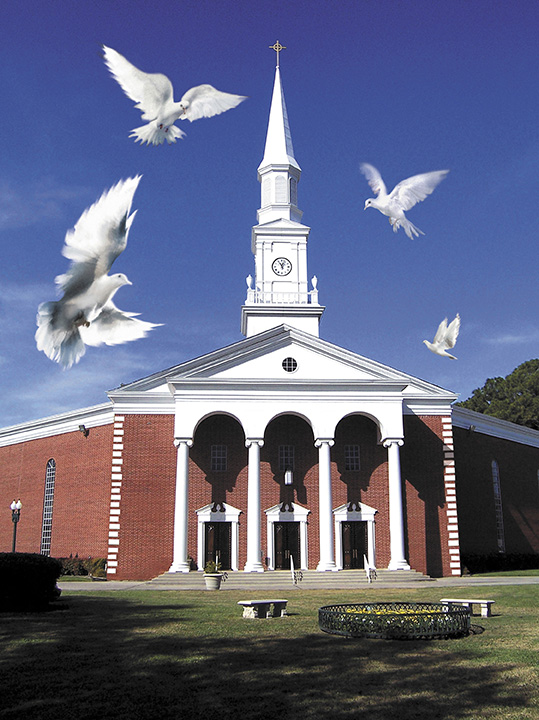
The worship of God cannot be confined to any structure or any place because the worship of God is conducted within the heart of an individual at any time, and any place according to the dictates of the heart. “Jesus said… The hour is coming, and now is, when the true worshipers will worship the Father in spirit and truth; for the Father is seeking such to worship Him. God is Spirit, and those who worship Him must worship in spirit and truth” (John 4:21-24).
We believe we are to work in cooperation with all believers who desire the literal fulfillment of Christ’s prayer, “that they all might be one,” while maintaining scriptural sovereignty under God, and each believer being guided by their own conscience. As well, we believe we are to be committed to Jesus’ teachings, the Gospel, exercising the gifts, rights and privileges invested in us by His Word, and seeking to extend the gospel to the ends of the earth. The New Testament speaks also of the church as the body of Christ, which includes all the redeemed of all the ages. The Church in its inclusive or universal sense, is the fellowship of persons redeemed by Christ and made one in the family of God who come from various Christian traditions and backgrounds. The church, in its local sense, is a fellowship of believers that come together to worship, nurture, and serve their community.
In the New Testament, the Church literally means the called-out ones. The Church is the body of Christ. Christ is the head of the body (Eph. 5:23; Col. 1:18). He is the source of life and has authority over the body. Like different parts of the body, there is diversity within unity in the Church (1 Cor. 12:27).
The mission of the church includes the following aspects of life
WORSHIP
The primary function of the Church is to love God and to glorify Him. Worship is to be carried over as an attitude to the whole of life. Thus, God is to be worshipped not only through our praise and prayer, but our giving, our serving, our witnessing and our loving.
FELLOWSHIP
The Church is to provide fellowship for believers. This is the common participation in the life of God. It expresses itself in unconditional love or agape, and in hospitality. Throughout Christian fellowship, believers learn how to forgive one another (Eph. 4:32), to bear one another’s burden (Acts 11:29), to pray for one another (James 5:16), and even to admonish one another (Heb. 10:24; Col. 3:16).
MINISTRY
The Church is called to serve. The supreme example of ministry or humble service is found in Jesus Christ (Mark 10:45)
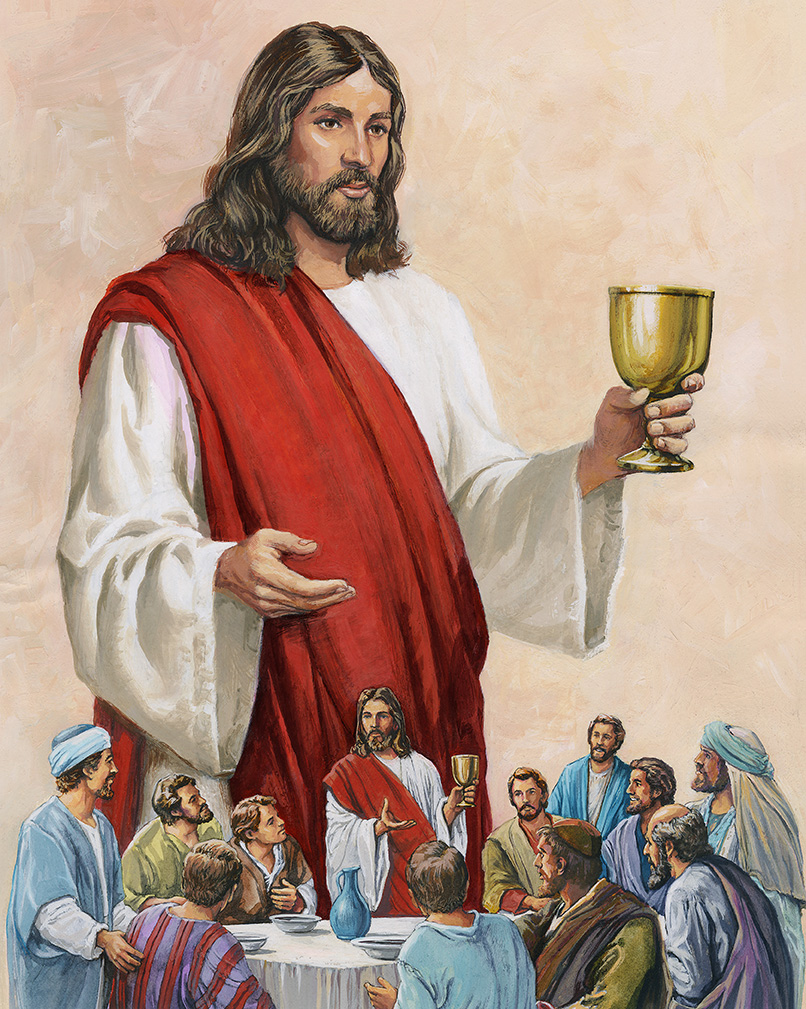
WITNESS
The Church is called to witness. The call to witness lay at the heart of Jesus’ final instructions to the apostles to evangelize the world (Matt. 28:18-20; Mark 16:15; Acts 1:8). The responsibility to make disciples of all nations should not rest on a few individuals in the Church but on the Church corporately.
WATER BAPTISM
Water baptism is part of the Great Commission: “Go therefore and make disciples of all nations, baptizing them in the name of the Father, and of the Son and of the Holy Spirit…” (Matt. 28:18-20). It is the first step of obedience to Jesus Christ (Acts 2:38).
COMMUNION
Communion, or the Lord’s Supper, commemorates the death of the Lord Jesus on the cross. Twice at the Last Supper, Jesus said, “Do this in remembrance of me.” The Apostle Paul says that every time we take part in the Communion service, we “proclaim the Lord’s death until He comes” (1 Cor. 11:24-26). We not only remember His death in the past, but we look forward to His return in the future.
PRAYER

Saint Matthew’s Churches believes that individuals should set aside a time and place for God and for prayer in their homes. We will always encourage people to pray. Saint Matthew’s invites its members and their neighbors to join us in kneeling before God in prayer. We send to our members and their neighbors, a free symbolic prayer rug to remind them to join us in kneeling and humbling ourselves before our holy God in prayer. We will continue to provide Gospel material and biblical prayer reminders (prayer rugs) and mail them to as many people as the church has postage to do so.
Many times, Christians make the mistake by only going to Christ in prayer about a problem. They think there is no other way out unless God intervenes. This is good and this we should do. But the Bible says, “Casting all your care upon Him, for He cares for you” (1 Peter 5:7). “But my God shall supply all your needs according to His riches in glory by Christ Jesus” (Phil. 4:19). According to these two Scriptures, if we have a care or need, then Jesus is concerned about it. Anything, regardless of how large or small it may seem, if it is a care, He invites us to cast that care upon Him through prayer. It can be any one of the many cares of life that come each day, need for strength to be a better Christian to do His will, or it could be healing for the physical body. “And the prayer offered in faith will make the sick person well; the Lord will raise them up. If they have sinned, they will be forgiven” (James 5:15). We as Christians cannot heal anyone, but He did say that we could pray and that the prayer of faith would save the sick and the Lord would raise them up.
Jesus said in Matt. 18:19, “Again I say to you, that if two of you shall agree on earth as touching anything that they shall ask, it shall be done for them of my Father which is in heaven.” “Therefore, I say unto you, what things you desire, when you pray, believe that you receive them, and you shall have them” (Mark 11:24). This verse in Heb. 13:8 applies directly to prayer – “Jesus Christ the same yesterday, and today, and forever.” We know in the Bible days Jesus answered prayer for all types of problems, sicknesses, and troubles that plague humanity. Because Jesus answered prayer in the past, we know that He will always answer prayer.
JESUS TAUGHT US TO PRAY
Jesus Christ spent much of His time in prayer. In the Gospel of Matthew, we read that on one occasion Jesus was asked by His disciples how to pray. You will find that He taught them this prayer:
“Our Father in heaven,
Hallowed be Your name.
Your kingdom come.
Your will be done
On earth as it is in heaven.
Give us this day our daily bread.
And forgive us our debts,
As we forgive our debtors.
And do not lead us into temptation,
But deliver us from the evil one.
For Yours is the kingdom and the
Power and the glory forever. Amen.”
(Matt. 6:9-13)
SUGGESTED PRAYERS

To help you start praying, we have suggested a few prayers that will help you to speak to God. When you pray regularly, you will soon want to add prayers in your own words.
Before Reading From the Scriptures
Dear God, as I read your Book, help me to understand what you want to show me today. As I learn more of you, give me the desire to live the way you teach. Amen
In Search of Faith
Dear God, I find it difficult to know what to believe. Help me to accept that even though I can’t understand everything, I can always trust you and what you say in the Bible. Amen
Seeking Guidance
Lord God, as I read your book and pray, help me to know your way, which will always be right for me, and then to make the right decisions. Amen
When Needing Comfort
Dear God, you know and understand everything, even when I feel ill, afraid, lonely, anxious, sad, or stressed. Help me now to trust you because you love me and promise to be with me always. Amen
When Conscious of Sin
Dear God, I admit that sometimes I do things which are wrong and cause distress to you and others. I am sorry. Please help me to accept the forgiveness that you offer through Jesus Christ. Amen
A Christian Commitment
Dear God, I confess that I have done wrong. I believe that your Son, Jesus Christ, took the punishment that I deserve by dying on the cross. I also believe that you raised him from the dead. Thank you. I now receive Jesus as my Savior and Lord. Amen
Acknowledging God’s Goodness
Thank you, Lord, for all you have given us in the world, for its beauty and for all the good things we enjoy. But I thank you most of all for loving me and for your promise of eternal life through Jesus Christ. Please help me to share these blessings with others. Amen
STEWARDSHIP
We believe that God is the source of all blessings, temporal and spiritual; all that we have and are we owe to Him. Christians have a spiritual commission and binding stewardship to carry out the gospel. In the sharing of the gospel, stewardship finds its highest meaning. We are to serve God with our time, talents, material possessions, and should recognize that all these gifts are entrusted to us for the glory of God and for helping others. According to the Scriptures, Christians should contribute of their means cheerfully, regularly, systematically, proportionately, and liberally for the advancement of the Redeemer’s cause on earth. Stewardship is based on the acknowledgment that all we are and have comes from God as a sacred trust.
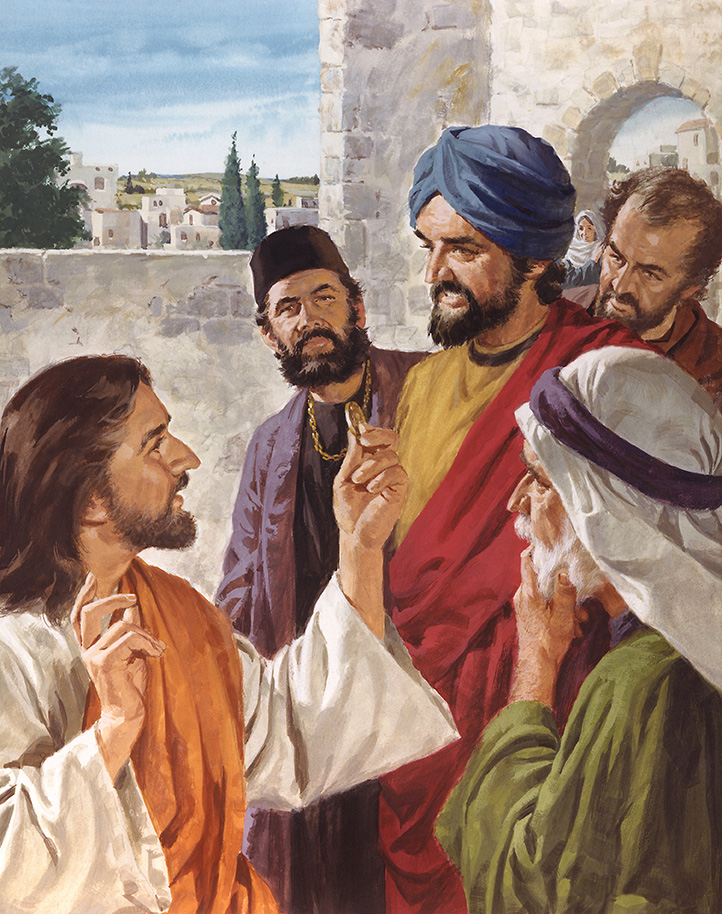
We believe that according to God’s Word, He promised to bless us for our giving. “Give, and it will be given to you: good measure, pressed down, shaken together, and running over will be put into your bosom. For with the same measure that you use, it will be measured back to you” (Luke 6:38). “Bring all the tithes into the storehouse, that there may be food in My house, and try Me now in this,” says the Lord of hosts, “If I will not open for you the windows of heaven and pour out for you such blessing that there will not be room enough to receive it. And I will rebuke the devourer for your sakes, so that he will not destroy the fruit of your ground, nor shall the vine fail to bear fruit for you in the field,” says the Lord of hosts (Mal. 3:10-11). “But my God shall supply all your need according to His riches in glory by Christ Jesus” (Phil. 4:19). “God is not a man, that He should lie, nor a son of man, that He should repent. Has He said, and will He not do it? Or has He spoken, and will He not make it good?” (Num. 23:19).
All through the Word of God, He teaches us that if we give to the outreaches of the kingdom of God, He will bless us. If we give to any church that is preaching the gospel of Christ and winning lost souls and doing the work that God commissioned the church to do, He will bless us financially. Many times, the reason that people do not receive financial blessings from God is because they don’t do it God’s way. Sometimes, men get the idea that if God will give to them, then they will give to God. But that’s not what the Word of God says to do. To receive His financial blessings, we must do it God’s way. God says for us to give first, then it will be given to us. (Luke 6:38). He said, “…Seek first the kingdom of God…and all these things shall be added to you” (Matt 6:33). God is a jealous God. Throughout the Bible, He always insists on being first in the lives of people. By failing to do according to the Word of God for stewardship, we hinder the divine plan of God for our lives.

Material possessions in themselves are neither good nor evil. The love of money rather than money itself is the root of all kinds of evil. In Christian stewardship, money becomes the means to spiritual ends both for the one who gives and for those who receive. When used in a biblical way, money becomes not a threat but an opportunity. Jesus was concerned that man be free from the tyranny of material things and that man use material things to serve his own needs and the needs of others. The responsibility of stewardship applies not only to the individual Christian but also to the church. What is entrusted should be spent wisely in the service of mankind and to the glory of God.
Christian stewardship conceives the whole of life as a sacred trust from God and requires the responsible use of life, time, talents, and substance, personal and corporate, in the service of Christ. A steward is not something a Christian chooses to become. Every Christian is a steward of the Lord, but each must choose if they are to be a good steward under God (1 Pet. 4:10).
EVANGELISM & MISSIONS
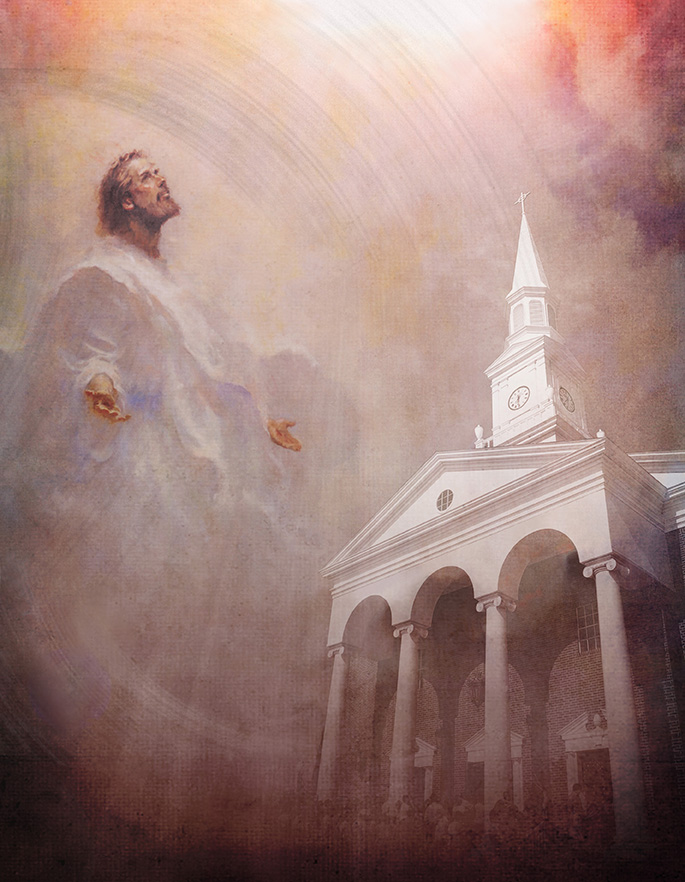
Saint Matthew’s Churches has been dedicated to reaching America, from coast to coast, since 1951, more than half of a century, with the Gospel of our Lord and Savior Jesus Christ. “The Gospel must first be published among all nations” (Mark 13:10). We believe that evangelism is the proclamation of the Good News of God’s grace in Jesus Christ, and of God’s judgment on sin. Evangelism is the response of Christians to people in the bondage of evil, and to the charge of Christ that His followers are to be His witnesses to all the world. It declares that the Gospel and the Gospel alone is the power of God for salvation. The task of evangelism is primary in the mission of the church and is the vocation of every Christian.
New Testament evangelism is evangelism by means of the gospel and by the power of the Spirit. It aims at the saving of the whole person. It confronts the lost with the cost of discipleship and the claims of the Lordship of Christ. It promotes divine grace, a personal commitment of faith, and a true conversion experience. The constraining love of Christ, the doom of the unsaved, and the strength of sin constitute a compelling urgency.
Personal and mass evangelism, church-centered evangelism, the use of sound methods and every worthy medium, the witness of a Christlike spirit, agonizing intercession for the mercy and power of God, and utter dependence on the Holy Spirit, point the way to the kind of evangelism desperately needed for this critical time. Evangelism, which is primary in the mission of the church and the vocation of every Christian, is the proclamation of God’s judgment and grace in Jesus Christ and the call to accept and follow Him as Lord.
Missions, as we use the term, is the extension of God’s redemptive purpose through evangelism education, and Christian service beyond the local church. The lost masses of the world constitute a stirring challenge to Christian churches. Since Christians believe in the freedom and competence of each person to make his own decisions in matters of religion, it is our responsibility under God to see that everyone has the knowledge and opportunity to make the right decision. We are under the compulsion of the divine commission to proclaim the gospel to every person of every race and nation. The urgency of the present world situation, the aggressive appeal of competing faiths and ideologies, and our concern for the lost, cause us to dedicate our utmost in resources to proclaim the redemption of Christ to the world.
We must use every means at our disposal, including modern media, to give Christ to the world. We cannot rely exclusively on a small, specially trained, and dedicated group of missionaries. Every Christian is a missionary, no matter where they live or what their position or vocation may be. Our attitudes toward those of other nations, races and religions are part of our testimony for Christ. Our witness in every realm and relationship of life must lend credence to our proclamation that Jesus Christ is Lord of all. Missions is about the extension of God’s redemptive purpose in the entire world through evangelism and Christian service, and for the utmost dedication on the part of Christians to this task.
CHRISTIAN & THE SOCIAL ORDER
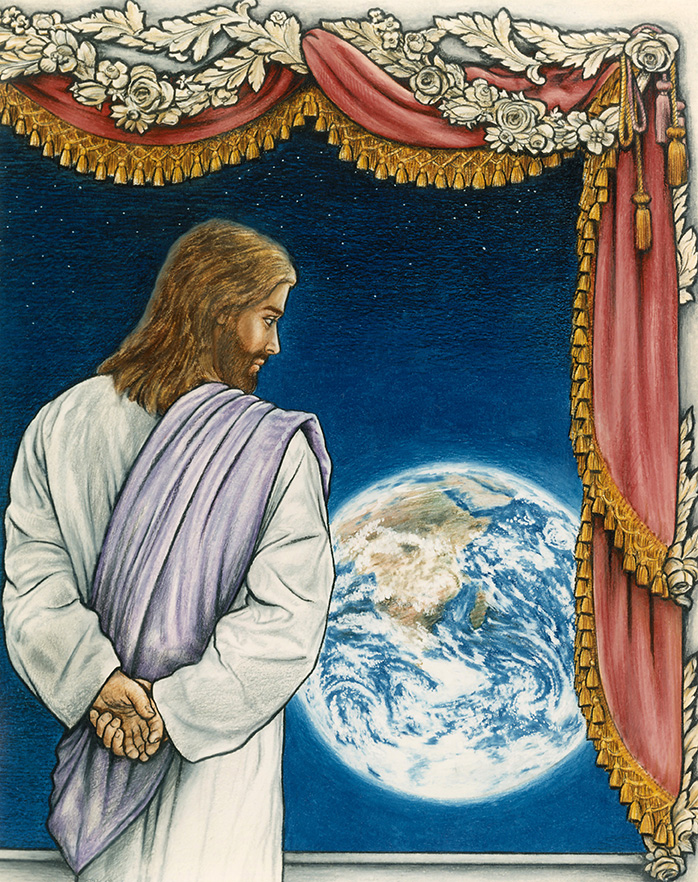
We believe that every Christian is under obligation to seek to make the will of Christ supreme in his own life and in human society. Methods used for the improvement of society and the promotion of righteousness, can be truly and permanently helpful only when they are rooted in the regeneration of the individual by the saving grace of God in Christ Jesus. Through the love of Christ, believers should oppose every form of greed, selfishness, and vice. They should work to provide for the orphaned, the needy, the aged, the helpless, and the sick. Every Christian should seek to bring industry, government, and society under the principles that Jesus taught such as truth, and brotherly love. To promote these ends, Christians should be ready to work with all people of good will in any worthy cause, always being careful to act in the spirit of love without compromising their loyalty to Christ and His truth (James 1:27; 2:8).
PEACE & WAR

We believe that it is the duty of Christians to seek peace with all people on principles of righteousness in accordance with the spirit and teachings of Christ, and they should pray for the end of all wars. The true remedy for the war spirit is the gospel of our Lord. The supreme need of the world is the acceptance of His teachings in all human affairs, and the practical application of His law of love (Rom. 12:8-19).
HEAVEN & HELL

We believe that God, in His own time and in His own way, will bring the world to its appropriate end. According to His promise, Jesus Christ will return personally and visibly in glory to the earth, the dead will be raised, and Christ will judge all in righteousness. The unrighteous will be consigned to Hell, the place of everlasting punishment. There will be a final judgment in which the wicked dead will be raised and judged according to their works. Whoever is not found written in the Book of Life, together with the devil and his angels will be consigned to everlasting punishment, which is the second death (Matt. 24:46; Mark 9:43-48; Rev. 19:20; 20:11-15; 21:8). Conversely, the righteous in their resurrected and glorified bodies will receive their reward and will dwell forever in Heaven with the Lord. That is why we look for the appearing of the Lord Jesus Christ in the clouds to catch away those who are prepared at His coming (Acts 1:9-11).
SPIRITUAL WARFARE
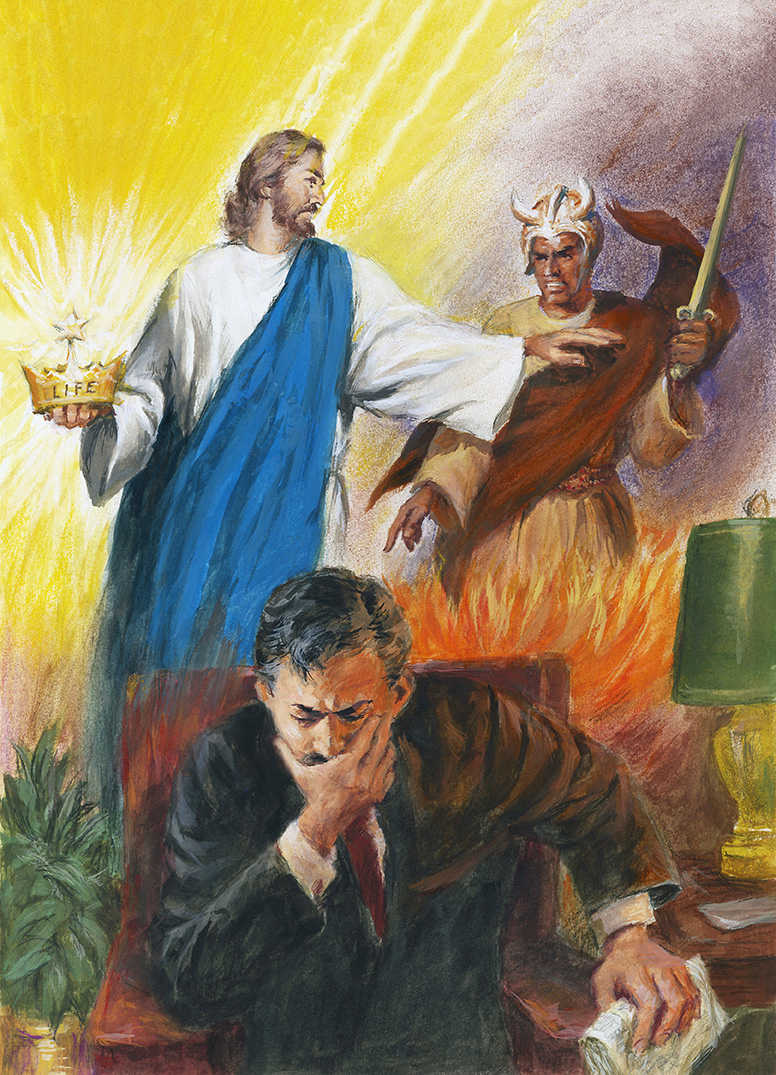
All of those who are born again by accepting Jesus Christ as their Lord and Savior can see what is happening to God’s holy Church. We see the signs of our Lord’s return for His Church. The Church is in spiritual warfare, and the signs below are all around us.
- The Ten Commandments have been removed from many federal and state properties.
- People are not allowed to mention Jesus Christ or God in our schools, except in curse words.
- Prayer and Bible reading have been taken away from our schools and yet look at the condition of our school systems today.
- Atheism is on the rise worldwide.
- Far less than half of the people across Europe even believe in God.
- Atheists in America appear on television and say that there is no God, and that science, not God, created the world.
- The signs of Christ’s second coming are too numerous to list here, but Matthew’s Gospel points out the key signs (Matt. chapter 24).
THE SECOND COMING OF CHRIST
“Then the sign of the Son of Man will appear in heaven, and then all the tribes of the earth will mourn, and they will see the Son of Man coming on the clouds of heaven with power and great glory. And He will send His angels with a great sound of a trumpet, and they will gather together His elect from the four winds, from the end of heaven to the other” (Matt. 24:30-31).
One of the events that every Christian can look forward to is the Second Coming of Christ. The New Testament repeatedly announces that Jesus Christ will one day be back. Christ will return to this world in glory. The Second Coming will be sudden, personal, and physical, visible, and triumphant (Matt. 24:44; 2 Thess. 1:10; Rev. 1:7). It will result in the end of human history, resurrection of the dead, and the final judgment of the world (John 5:28-29). It will give God’s children their final glory and will bring in the new heavens and new earth.
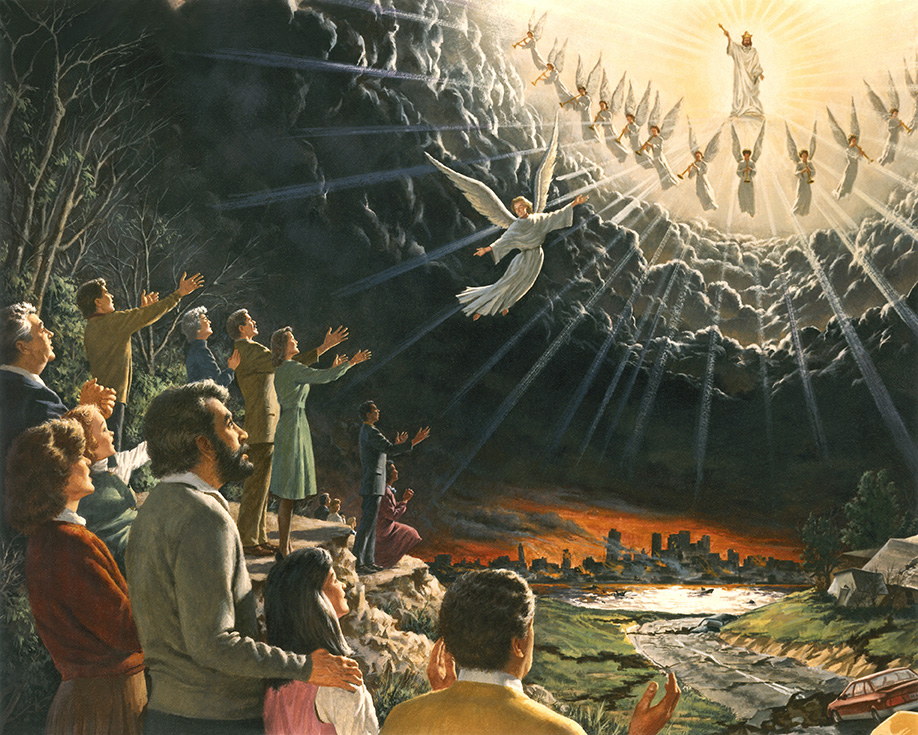
No one knows the timing of the Second Coming. However, the Bible tells us that several predictions must be fulfilled before Christ returns:
-
- Natural disasters – earthquakes, famines, pestilence, fearful events, signs from heaven (Luke 21:11,25).
- Social evils – lovers of money, boastful, proud, abusive, disobedient to their parents, ungrateful, unholy, without love (2 Tim. 3:1-5).
- International wars -– kingdoms rising against kingdoms (Mark 13:7-8; Luke 21:9-10).
- Oppression – persecutions, betrayals, and spiritual deception (Matt. 24:4-14; Mark 13:12; Luke 21:26).
Christians are to always be ready for the Second Coming of Christ.
